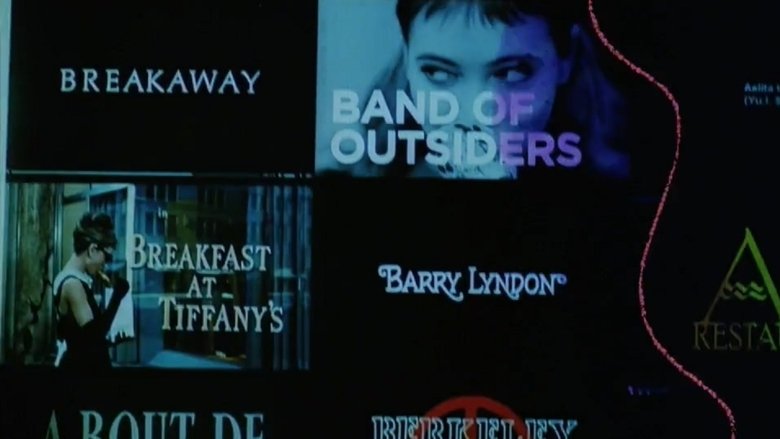Our friends at MUBI have been amusing themselves during lockdown by staging an inhouse competition to find the most esoteric project they can get on the official UK release schedule. I think the 60-minute tone poem constructed out of swatches of clothing from around the world remains in pole position, but the streaming platform's latest release, Jennifer West's Film Title Poem, runs it unarguably close: here is a 70-minute curio stitched together out of title cards sourced from diverse points in the cinematic landscape. (West suggests her own subtitle, "A Hackers [sic] Odyssey", the Hackers half-inched from Iain Softley, the Odyssey from Kubrick.) Curiously, we're not looking at the cards as they were seen in their original context, but projected on West's bedroom wall or as paused on a laptop, with the director herself using what looks like a common-or-garden table lamp to illuminate those words she wants us to reconsider; these reproductions are then overlaid with relevant scraps of score and the kind of scratched-on doodles and squiggles that have been a feature of do-it-yourself experimental cinema since the form's conception. The structure is broadly alphabetical - we start out considering the formatting of such titles as After Hours, Altered States and Amy, and wend our way towards Yellow Submarine, Zabriskie Point and Zorns Lemma - although sporadically a loose cannon (loose canon?) like The Wicker Man or News from Home will pop up where it's not supposed to, as if misfiled.
What does it all represent? Well, primarily softcore porn for font buffs, who'll get to contrast the relative plainness of silent-era titles with their more forceful, screen-filling Golden Age equivalents, and then those with today's varied, splashier typography. The approach generates a few funny, unexpected juxtapositions - so the heavyweight Gangs of New York cedes the screen to Garfield, and isn't that far from Ghoulies II - and may induce gleeful squeals at fragments one recognises. (I perked up on hearing a dash of the Run Lola Run score.) But its pleasures are fleeting and trivial; I found the limits of my cinephilia being tested around the time M. Hulot's Holiday gave way to a flicker of Mulholland Drive. The limitation is that the concept is right there in the title, and doesn't develop much further; we get whatever point there is - and it may be no more than West demonstrating what a catholic DVD collection she has, that women can be as exhaustingly film bro-ish as any man - within the first few minutes. (I'd also argue we get lots of film titles, but not much poetry, nothing to reflect upon - save whether the cheapo-organ original score really is the year's most annoying.) One possible influence, Christian Marclay's The Clock - a hall-of-fame gallery piece that spliced together timechecks from a gazillion different features - sustained itself over 24 hours through variation, venturing deep into the body of its highlighted films to sample wildly varied material: you never knew where it was checking in next, which is why you sat there until the gallery staff told you they were about to lock up. West, by definition, never mines deeper than any given film's opening seconds: the result's at best a patchy starter, at a time when many of us are longing for a full three-course meal. Nice try, Team MUBI, but you'd give it ten minutes tops in the Tate.
Film Title Poem will be available to stream via MUBI from Thursday.

No comments:
Post a Comment